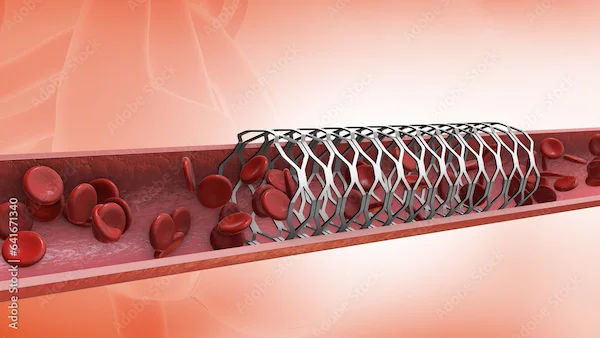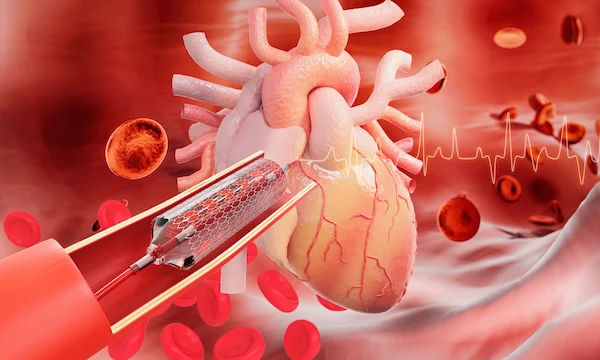Can Alcohol Consumption Cause Heart Attacks?
Learn how alcohol consumption can contribute to heart attacks. Understand the risks of heavy drinking, its effects on heart health, and safe drinking guidelines to protect your heart.

Written by Dr. Mohammed Kamran
Reviewed by Dr. D Bhanu Prakash MBBS, AFIH, Advanced certificate in critical care medicine, Fellowship in critical care medicine
Last updated on 18th Aug, 2025

Alcohol is a common part of social gatherings and celebrations, but its effects on heart health are often debated. While some studies suggest moderate drinking may have certain benefits, excessive alcohol consumption can significantly increase the risk of heart attacks and other cardiovascular problems.
How Does Alcohol Affect the Heart?
Alcohol impacts the heart in multiple ways, some of which can be harmful:
1. Raises Blood Pressure
Excessive drinking can lead to high blood pressure (hypertension), a major risk factor for heart attacks. Alcohol causes blood vessels to constrict, forcing the heart to work harder to pump blood.
2. Weakens the Heart Muscle (Cardiomyopathy)
Chronic heavy drinking can damage the heart muscle, leading to a condition called alcoholic cardiomyopathy. This weakens the heart, making it less efficient at pumping blood, which can eventually lead to heart failure.
3. Increases Bad Cholesterol & Triglycerides
Alcohol can raise levels of LDL ("bad" cholesterol) and triglycerides (a type of fat in the blood), contributing to plaque buildup in arteries (atherosclerosis). This narrows the arteries, increasing the risk of blockages that cause heart attacks.
4. Triggers Irregular Heartbeat (Arrhythmia)
Binge drinking can cause atrial fibrillation (AFib), an irregular heartbeat that increases the risk of blood clots, stroke, and heart failure.
5. Leads to Weight Gain & Diabetes Risk
Alcohol is high in empty calories, contributing to obesity—another risk factor for heart disease. It can also affect blood sugar levels, increasing the risk of type 2 diabetes, which is linked to heart problems.
Does Moderate Drinking Have Any Benefits?
Some studies suggest that moderate alcohol consumption (especially red wine) may have heart-protective effects due to antioxidants like resveratrol. However, these benefits are debated, and the risks of excessive drinking far outweigh any potential advantages.
What is "Moderate" Drinking?
Men: Up to 2 standard drinks per day
Women: Up to 1 standard drink per day
(1 standard drink = 14g of pure alcohol, roughly equivalent to a small glass of wine or a can of beer)
Warning Signs of Alcohol-Related Heart Problems
If you consume alcohol regularly, watch for these symptoms:
Chest pain or discomfort
Shortness of breath
Irregular heartbeat
Fatigue or dizziness
Swelling in legs (a sign of heart failure)
If you experience any of these, consult a doctor immediately.
Consult Top Specialists
How to Protect Your Heart from Alcohol-Related Risks?
Here’s how you can protect your heart from alcohol-related risks:
1. Limit Alcohol Intake
Stick to moderate drinking guidelines or consider quitting if you have existing heart conditions.
2. Choose Heart-Healthy Alternatives
Opt for non-alcoholic beverages like herbal teas, infused water, or mocktails.
3. Maintain a Balanced Diet
Eat plenty of fruits, vegetables, whole grains, and lean proteins to support heart health.
4. Exercise Regularly
Physical activity strengthens the heart and helps manage weight, blood pressure, and cholesterol.
5. Get Regular Health Check-ups
Monitor blood pressure, cholesterol, and blood sugar levels to detect early signs of heart disease.
6. Avoid Binge Drinking
Even occasional heavy drinking can strain the heart.
When to See a Doctor?
If you’re concerned about your alcohol consumption and heart health, consider:
Consulting a cardiologist if you have symptoms like chest pain or irregular heartbeat.
Getting a heart health check-up, especially if you have a family history of heart disease.
At Apollo 24|7, you can book a consultation with a specialist or schedule tests like ECG, cholesterol checks, and blood pressure monitoring. Early detection can prevent serious complications.
Conclusion
While moderate alcohol consumption may not always harm the heart, excessive drinking is a significant risk factor for heart attacks and other cardiovascular diseases. Making mindful choices about alcohol, adopting a heart-healthy lifestyle, and seeking medical advice when needed can help protect your heart in the long run.
If you're unsure about your heart health, don’t wait—book a consultation today and take the first step toward a healthier heart!
Consult Top Specialists
Consult Top Specialists

Dr. Bhukya Pavan Kalyan
General Physician
5 Years • MBBS DNB Paediatrics
Bengaluru
PRESTIGE SHANTHINIKETAN - SOCIETY CLINIC, Bengaluru

Dr. Tripti Deb
Cardiologist
40 Years • MBBS, MD, DM, FACC, FESC
Hyderabad
Apollo Hospitals Jubilee Hills, Hyderabad
Dr Moytree Baruah
Cardiologist
10 Years • MBBS, PGDCC
Guwahati
Apollo Clinic Guwahati, Assam, Guwahati

Dr. Zulkarnain
General Physician
2 Years • MBBS, PGDM, FFM
Bengaluru
PRESTIGE SHANTHINIKETAN - SOCIETY CLINIC, Bengaluru

Dr. Anand Ravi
General Physician
2 Years • MBBS
Bengaluru
PRESTIGE SHANTHINIKETAN - SOCIETY CLINIC, Bengaluru

.webp)


